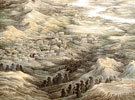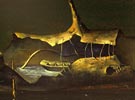“We Who Feel Differently”: LGBTQ Identity and Politics in China
Hongwei Bao
The University of Sydney
June 14 2010
With its widely-acknowledged origin in the Euro-American West, LGBTQ (Lesbian, Gay, Bisexual, Transgender and Queer) identity and politics seem to have gone global. Dennis Altman and other LGBTQ studies scholars and activists have observed the “globalization of sexualities”, that is, in Asia and other parts of the non-Western world, a Western (often read American) type of individualistic and self-knowing LGBTQ identity has emerged in bars, clubs, saunas, and other types of pink venues. Concomitant with this, a Western type of LGBTQ politics, represented by the imperative to “come out” so as to discover an “authentic” self, together with an anti-state, anti-social, anti-establishment, anarchistic and oppositional political stance, has been embraced by an increasing number of LGBTQ individuals and rights groups. As many people have been “liberated” and empowered by such identification and experiences, many more also feel uncomfortable about the hegemonic representation of LGBTQ identity and politics: after all, these modes of identification and strategies of empowerment are historically, socially and culturally specific. They came from a Western context and were shaped by the particular history of social movements in America and Europe since the 1960s, as well as the political philosophy of the public sphere and civil society in opposition to the state, family and other forms of social institutions. When they travel to non-Western countries and regions, they need careful revision and reworking in order to accommodate the specific historical and cultural traditions and the particular social contexts of these countries and regions. Furthermore, we must bear in mind that even the so-called “West” is not such a coherent entity: it is an “imagined community”, and its geographical and cultural heterogeneity cannot be subsumed by a singular type of LGBTQ identity and politics. When LGBTQ activists fight for social recognition and rights to sexual citizenship, and against marginalization and discrimination, they often fail to recognize the internal differences within the category of LGBTQ, as well as the complex articulation of sexuality, gender, class, race and ethnicity. In this sense, LGBTQ identity and politics create both inclusions and exclusions; they offer people opportunities but at the same time also create epistemic violence. In other words, both in and out of the West, there are people who feel differently about the hegemonic LGBTQ identity and politics advocated by transnational LGBTQ scholars and activists. Recognizing the incommensurable differences is central to LGBTQ movement as a transnational, cross-cultural and political project.
“We Who Feel Differently” is a multi-part art project designed by Carlos Motta, a New York-based Colombian artist. It is composed of a series of illustrations, posters, a video installation and an Internet archive. In July, 2010, part of the project travels to China, to the Other Gallery in Shanghai. It features a series of illustrations representing different but often marginalized queer identities and posters that spell a kind of poem about queer rights based on the language of global LGBTQ protests. These works engage with disparate gender and sexual histories and representations in different parts of the world (Colombia, South Korea, Norway and the U.S). They critically interrogate the dominant representations of the LGBTQ identity and politics in the West by situating gender and sexuality in diverse locations and historical eras. Motta’s work celebrates the poetics of queerness: it takes an anti-normative political stance, yet it also recognizes the multiplicity and contingency of the socially constructed norms, as well as the specific and flexible strategies and tactics of resisting, appropriating and reworking these norms. In other words, it both queers the heterosexual social norms and the LGBTQ identity and politics itself. Through artistic representation of alternative expressions of gender and sexuality, the project opens up alternative imaginaries for multiple and cultural-specific forms of LGBTQ identities and politics.
The title “We Who Feel Differently” raises many interrelated questions when we situate the exhibition in China and in the context of the transnational LGBTQ movement: Who are “we”? How do “we” feel? About what? Who are we comparing with? What do “those people” feel? And why do “we” feel differently from “them”? Why is feeling, often ignored by political theorists, so important to today’s LGBTQ politics? How do we recognize incommensurable cultural differences while at the same time sharing some goals in common (as in the term tongzhi, literally “sharing the same goal”)? To untangle all these questions, we would, first of all, need to find out who we are, that is, what is Chinese LGBTQ identity and politics. I will do so by offering a brief historical account of same-sex desires in China and, in so doing, discuss the relationship between Chinese gay identity and transnational LGBTQ movement. At the end of the article, I shall query whether there is a culturally-specific Chinese gay identity and politics, and how it might problematize the “global queering” argument popularly held by people in both China and the West.
Common understandings with regard to homosexuality in China diverge: while some regard homosexuality as imported from the West, others attribute it to China’s own history and tradition. In this article, through a brief overview of the history of homoerotism in the People’s Republic of China, I suggest that LGBTQ identities in contemporary China are as much Chinese as they are transnational. In fact, same-sex desire in China has been the result of the interplay of the local, the national, the regional and the global, and is subject to various political, economic and cultural discourses. It is, therefore, hardly possible to pin down whether or not it is “Chinese.” And exactly because of this, the question of whether there is a uniquely “Chinese” LGBTQ politics becomes complicated: contemporary Chinese LGBTQ politics do not follow the Euro-American model because of its cultural embeddedness; this is not to say that it is not influenced by, and therefore a part of, the transnational LGBTQ movement. Perhaps it is more useful to ask: what does homosexuality in China tell us about China’s historical and social change, and about LGBTQ identity and politics in a transnational context?
The Pre-modern China: “Passions of the Cut Sleeve”
Homoerotic practices in pre-modern China can be traced back to the 8th and 7th centuries BCE. Most of the literary representations featured same-sex intimacies among male elites at the imperial court or in the literati circle. Two characteristics can be summarised from these representations: first, most of these intimacies occurred along the social hierarchies of class, age and social status, such as between rulers and their favourites, between older and younger noblemen, and between theatre patrons and actors. These social hierarchies impacted on sexual hierarchies: the socially superior usually took the active role in sex and the socially inferior usually take the passive role. Their relationships were often characterized by strong emotional bonds and deep attachments that resemble Confucian filial piety. Second, there was not an umbrella term to refer to such practices; instead, people often used literary tropes to refer to such practices: terms such as Longyang, “cut sleeve” (duanxiu) and “split peach” (fentao) come from historical anecdotes and they describe not what one is, but what one does or enjoys. In other words, homoerotic practices were not bound up with a person’s identity in pre-modern China.
Same-sex eroticism was generally tolerated, although not widely accepted, in pre-modern Chinese society, as long as it neither transgresses social hierarchies nor affects a man’s fulfilment of his duty of getting married and carrying on the family lineage. Major religions and beliefs in China, including Confucianism, Taoism and Buddhism do not take issue with homoeroticism, both between men and between women. In pre-modern China, people held a different view of gender and sexuality, which prioritised the different roles that people played in a Confucian family and society and which considered the interaction and balance of yang (the masculine and active force) and yin (the feminine and passive force) the purpose and rationale of all sexual intercourses. Such a conception still impacts on the popular understanding of same-sex intimacy in contemporary China, although the medical, scientific and political types of homosexual and gay identities introduced from the West have taken the centre stage in modern China.
Such a romantic construction of homoeroticism in pre-modern China should be read with some cautions, as this type of historical narrative was a product of the twentieth-century Sinology which tended to cast an orientalized gaze upon a “mystic” China with its distinctive history and tradition. Such a narrative also neglects the facts that the pre-modern Chinese history was not a unitary and coherent narrative, and that there were multiple and sometimes contradictory discourses of sex and sexuality in pre-modern China, and indeed, at different times of the pre-modern Chinese history, and that globalization occurred far earlier in pre-modern China (bearing in mind that the Tang Dynasty Chang’an [today’s Xi’an] and the Yuan Dynasty Dadu [today’s Beijing] are renowned international metropolises), hence making a “pure” and “authentic” Chinese tradition virtually impossible. Modern Chinese LGBTQ identities may have little to do with the pre-modern forms of eroticism and intimacy, but the strong call to go back to the pre-modern past bespeaks the collective desire within China’s LGBTQ community for the legitimation of alternative expressions of genders and sexualities that are not dictated by the influence from the West. Indeed, it must be noted that sexualities and identities are historically and socially constructed. A previous form does not necessarily lead to a later form. The desire to construct a coherent historical narrative for a singular sexuality speaks more about what has not happened in the present than about what has happened the past. A history of same-sex desire in China should, therefore, be read with a critical attitude and with some contemporary concerns.










